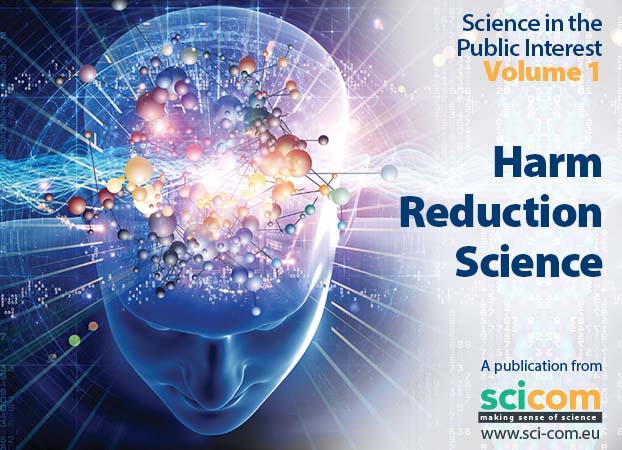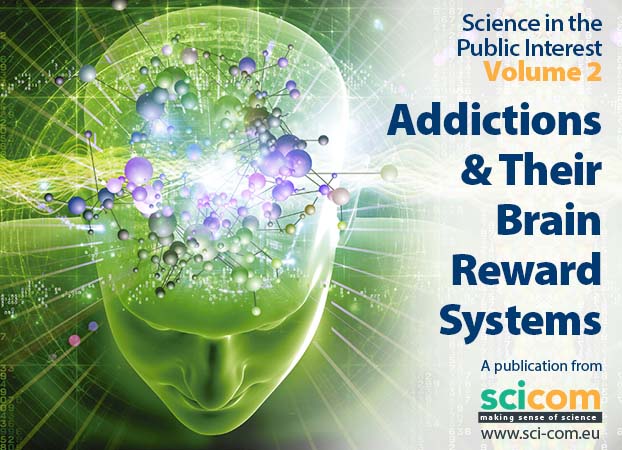Organised by Dr. Michel Kazatchkine, UN Secretary General’s Ban-Ki Moon’s Special Envoy on HIV/AIDS in Eastern Europe and Central Asia & Co-organised by Aidan Gilligan, SciCom
Sunday 16 February, 13h00 PM – 14h30 PM, (Hyatt Regency Chicago)
American Association for the Advancement of Science (AAAS), Annual Meeting 2014, 13-17 February, Chicago
Meeting Global Challenges: Discovery and Innovation
Session Description
Science-based issues are crucial to the conduct of foreign policy. Countries large and small, developed and developing, express a clear interest in implementing science diplomacy through politics. This is for the purpose of representation, cooperation, resolving disputes, improving systems, and securing the right to science for citizens and our most vulnerable populations. The same applies to global companies and institutions operating in a complex matrix of technical and relational challenges. This symposium will test this theory against the successes and failures of health diplomacy strategies around two challenging issues: global responses to HIV/AIDS; and harm reduction science linked to lifestyle.
Panellists with unique, first-hand insights into real-life best practices and pitfalls encountered in public health service will spotlight how new disciplines and voices are being integrated into decision-making. Accepting that societal problems are not necessarily problems with purely scientific solutions, speakers will argue that meeting global challenges demands not only scientific discovery and innovation, but greater inclusiveness and dialogue. Their common cause is to demonstrate that if we accept the potential of science diplomacy as a common currency capable of underpinning today’s stakeholder interactions, we must equally leverage control at the highest levels to remove the political barriers that prevent affected populations from accessing services.
Relevance to Theme and Special Relevance to the Audience:
This session will appeal to all delegates, especially the policy and health interested. It tackles head-on the 2014 theme of meeting global challenges through discovery and innovation. It addresses real-life case-studies of global significance. It examines the matrix of science diplomacy interactions around decision-making that allows for innovation in sustainable policies, products and processes. It aims to signpost how world economies can continue to enhance human welfare across society.
 |
Moderator: Dr. Michel Kazatchkine, UN Secretary General’s Ban-Ki Moon’s Special Envoy on HIV/AIDS in Eastern Europe and Central Asia; Former Executive Director of the Global Fund to Fight Aids, Tuberculosis & Malaria. Av. De France 23, 1202 Geneva, Switzerland. Phone Number: 0041792394054; Email: This email address is being protected from spambots. You need JavaScript enabled to view it. |
 |
Co-organiser: Aidan Gilligan, Founder, CEO SciCom - Making Sense of Science, Euroscience Governing Board Member, ESOF Copenhagen 2014, International Media & Marketing Committee Vice-Chair. 121 Rue Franklin, 1000, Brussels, Belgium. Phone Number: +32(0)474042602; Email: This email address is being protected from spambots. You need JavaScript enabled to view it. |
 |
Moderator: Dr. Norman P. Neureiter, Chair, Senior Advisory Board, Science & Diplomacy Journal, Acting Director, AAAS Center for Science, Technology and Security Policy, Former Science Adviser to the U.S. Secretary of State, Former Assistant for International Affairs to the President’s Science Adviser. 1200 New York Avenue NW, Washington DC, DC 20005, USA. Phone: 202-326-6493; This email address is being protected from spambots. You need JavaScript enabled to view it. |
 |
Discussant: M.D. Delon Human, Director-General of the Department of Science and Technology, Republic of South Africa; South African Minister for Science and Technology, Care Of: Daan du Toit, Minister, Counsellor (Science and Technology): South African Mission to the European Union (Senior S&T Representative to the EU: South African Department of Science and Technology) Rue Montoyer 17-19 B-1000, Brussels, Belgium. Phone Number: 0032473687514; Email: This email address is being protected from spambots. You need JavaScript enabled to view it. |
 |
Discussant: Seema Kumar, Vice President, Enterprise Innovation & Global Health Communications, Johnson & Johnson, One Johnson & Johnson Plaza, New Brunswick, NJ 08933, USA. Phone Number: +01 732 524-2646; Email: This email address is being protected from spambots. You need JavaScript enabled to view it. |
Presentation Title: Building an International Science Diplomacy System
 |
Speaker 1: Ms. Frances A. Colón, Ph.D. Deputy Science and Technology Adviser to the Secretary of State, U.S. Department of State, Washington DC, USA. Phone: 202-647-8694; This email address is being protected from spambots. You need JavaScript enabled to view it. |
Talk Description:
Traditionally, states have been the principal actors exercising the practice of diplomacy as a means of managing their international relationships. The emergence of new global challenges from cross-border energy supply, preventable diseases linked to lifestyle, shifting geo-political environments, and the linkages between health and ageing, trade, intellectual property, and human rights, present stakeholders with a complex matrix of technical and relational challenges. Due to the impact of globalisation on science, however, a new type of diplomacy and dialogue is necessary to navigate the changing landscape of international affairs and politics. As economic progress in every community worldwide has become interdependent with advances in science and technology, science diplomacy is increasingly the chosen method of interaction between stakeholders. At the same time, it is imperative that we work in ways that are transparent and open to a diversity of contributors and ideas. Assessing risk versus benefit in adopting an innovation is complex and depends upon an open dialogue. Only then will we realize the promise of furthering scientific discovery and innovation to meet pressing global challenges and improve quality of life.
Presentation Title: HIV/Aids: How Science Diplomacy Removes Political Barriers to Accessing Services
Talk Description:
The political, societal, scientific and medical response to the HIV/AIDS epidemic in the last ten years has shaped the landscape of the next era of global health. At the centre of an effective response is that it is evidence-based and targets the specific environment and the needs of the most affected and in a given country context. In many countries across the world, this has resulted in tensions between the cultural, legal and policy environment and the urgent need to address vulnerable and marginalized populations. Harm reduction (HR) interventions, for example, have been proven to be effective in preventing infection with HIV in people who inject drugs and is recommended by WHO. Yet, only 50 % of countries in the world support HR in national policy documents and or through implementation of interventions. The history of acceptance, rejection or partial recognition of HR illustrates the tensions between science and policy-making and between scientific evidence and relativist stances of political nature. Drafting global guidelines and recommendations based on a critical review of evidence, on broad consultations and consensus-seeking processes, and establishing new multi-sectoral partnerships and dialogue between the civil society and public sector, are among the tools that science diplomacy has successfully used to remove some of the societal/political barriers to access to care and that this presentation will discuss.
Presentation Title: Harm Reduction: How Science Diplomacy Enhances Dialogue
 |
Speaker 3: M.D. Delon Human, President & CEO, Health Diplomats, Secretary-General of the Africa Medical Association, Former Secretary of the World Medical Association, 8 Place de la Tour, CH-1270 Trelex, Switzerland. Phone Number: +41 22 369 90 12; Email: This email address is being protected from spambots. You need JavaScript enabled to view it. |
Talk Description:
Science, communicated well, provides a critical opportunity for stakeholders involved in global health policy development to engage and break down barriers. Policy development in e.g. pharmaceutical, tobacco and food regulation often lack a robust science base, which leads to politically driven rather than evidence-based policy. By widely sharing our biomedical discoveries, cultivating research talent and human resources in developing countries, and negotiating treaties and other international agreements that save lives and improve health, we can provide leadership through science and foster more constructive relations with other countries. Both the United Nations High Level Meeting Political Declaration and WHO Global Action Plan on the Prevention and Control of Noncommunicable Diseases call for multi-stakeholder action and evidence-based policies. Sound global health policy will greatly benefit if we can generate new ideas to show the positive role science and scientists can play in the design and development of policies to ensure the highest possible standards of health, wealth and stability of the world.





